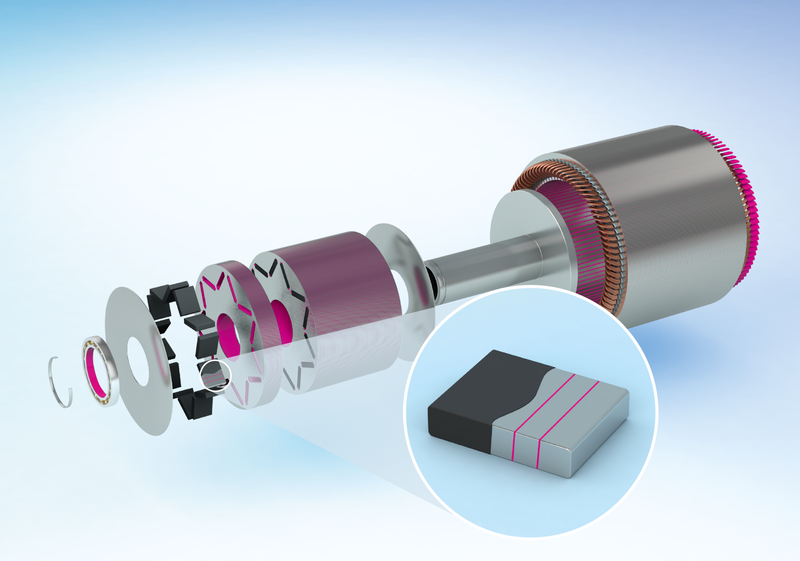
DELO has launched an adhesive with exceptionally high temperature stability. DELO MONOPOX HT2999 achieves strengths of 20 MPa at 180 °C. This is four times greater than its predecessor. The product was developed primarily for the automotive industry and mechanical engineering.
High-temperature-resistant adhesives are in particular demand for electric motors and power electronics. Many products that are currently on the market show a clear drop in performance at temperatures above 150 °C. DELO’s new structural adhesive can be used above that temperature.
Its performance profile has been optimized for bonding magnets in electric motors. For example, the compression shear strength of bonded magnets (NdFeB) is 20 MPa at 180 °C, with the bonded joints remaining thermally stable in the long term. Even after 1,0000 hours of storage at 180 °C, they achieve a temperature stability of 20 MPa. The maximum operating temperature of electric motors is generally 180 °C since the powerful rare earth magnets will demagnetize at higher temperatures. If a certain application requires resistance at higher temperatures, DELO MONOPOX HT2999 can even be used up to 220 °C.
Electrical insulation is another important property of the adhesive. It minimizes eddy currents in electric motors, reducing heat development and increasing motor performance. DELO MONOPOX HT2999 is additionally provided with integrated spacers. They ensure a uniform and very thin bonding gap of 50 µm for magnet stacking. This allows the use of more magnetic material and also contributes to motor efficiency.
The one-component epoxy resin is gray and pasty. It takes just 10 minutes to cure in an air convection oven at 150°C. Compared to other high-temperature adhesives that require 30 to 40 minutes curing time at 150 °C, this adhesive offers clear advantages in saving time and energy.
“Four times the strength of the previous generation is a truly extraordinary step in development. And since the product is also electrically insulating, it provides additional functionalities for manufacturers of electric motors,” says Dr. Karl Bitzer, Head of Product Management at DELO. “It's a good example of how we're pushing the boundaries of what's technically possible, step by step.”

















